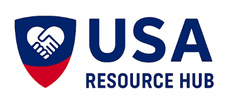More Americans are turning to microbusinesses and side hustles to regain financial stability after layoffs, career shifts, or economic uncertainty. Whether you’re a displaced worker, a freelancer looking to formalize your income, or someone ready to pivot into entrepreneurship, livelihood starter kits and microbusiness grants offer a practical way to launch without upfront costs.
These programs provide free tools, training, and seed funding to help you start earning quickly. From food carts and online stores to service-based businesses, the opportunities are diverse and often underutilized.
What Are Livelihood Starter Kits?
Livelihood starter kits are bundled resources designed to help individuals launch small-scale businesses. Depending on the program, a kit may include:
- Basic equipment (e.g., cooking tools, sewing machines, mobile devices)
- Starter inventory or supplies
- Marketing materials or signage
- Business registration support
- Access to mentorship or training
These kits are typically funded by local governments, nonprofit organizations, or workforce development agencies. They’re especially popular in communities focused on economic recovery and self-employment.
What Are Microbusiness Grants?
Microbusiness grants are small, non-repayable funds awarded to individuals starting or growing a small business. Unlike loans, grants do not require repayment and are often targeted toward:
- Low-income entrepreneurs
- Displaced workers or those affected by layoffs
- Veterans, solo parents, or underrepresented groups
- Rural or underserved communities
Grant amounts vary, but many range from $500 to $5,000. Some programs also bundle grants with training, licensing support, or access to co-working spaces.
Who Qualifies for These Programs?
Eligibility depends on the specific program, but common requirements include:
- Proof of income or unemployment status
- A basic business plan or concept
- Residency in a target area (city, county, or state)
- Willingness to complete training or mentorship sessions
Some programs prioritize applicants with caregiving responsibilities or limited access to traditional employment. For example, financial help for solo parents may include both cash grants and starter kits tailored to home-based businesses.
Popular Business Types Supported
Starter kits and grants often focus on businesses that can be launched quickly with minimal overhead. Common examples include:
- Food carts or home-based catering
- Online reselling or dropshipping
- Mobile repair services (phones, appliances, bikes)
- Handmade crafts or digital products
- Cleaning services or pet care
- Tutoring or freelance writing
These business types are chosen for their scalability, low startup costs, and ability to generate income within weeks.
How to Apply for Starter Kits and Grants
Here’s a step-by-step guide to getting started:
- Search local programs – Visit your city or county’s economic development website. Look for keywords like “microbusiness grant,” “starter kit program,” or “entrepreneurship support.”
- Prepare a simple business plan – Most applications require a basic outline of your business idea, target market, and expected costs. You don’t need a formal document—just a clear plan.
- Gather required documents – These may include proof of income, unemployment status, residency, or identification.
- Submit your application – Follow instructions carefully. Some programs have rolling deadlines, while others open only once or twice a year.
- Complete any required training – Many programs include short workshops or mentorship sessions. These are often free and designed to help you succeed.
Common Mistakes to Avoid
To improve your chances of approval, avoid these pitfalls:
- Submitting vague or incomplete business ideas Be specific about what you plan to sell or offer, and how you’ll reach customers.
- Missing deadlines or ignoring follow-up emails Stay organized and responsive throughout the application process.
- Overlooking local programs National grants get more attention, but local programs often have better odds and more personalized support.
- Skipping training requirements Even if optional, training sessions can connect you with mentors and future funding opportunities.
Tips for Success After Launch
Once you receive your kit or grant, focus on building momentum:
- Start small and test your product or service with friends, neighbors, or online communities.
- Track your expenses and income from day one.
- Use free tools like Canva, Google Sheets, and social media to market your business.
- Stay connected with your grant provider as they may offer follow-up funding or networking events.
Livelihood starter kits and microbusiness grants are more than just financial aid—they’re launchpads for independence, stability, and long-term growth. These programs are helping thousands of Americans turn ideas into income without taking on debt or waiting for perfect conditions.


Leave a Reply